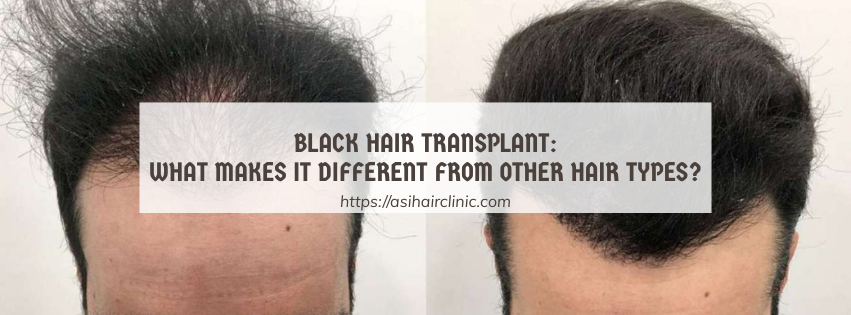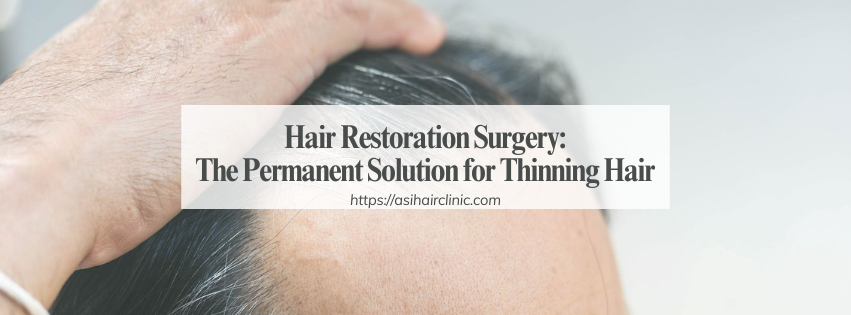Can I Use Aspirin for Hair Loss?
Hair loss is a pressing concern for millions around the globe. While many individuals are aware of conventional treatments, there is an increasing interest in natural and affordable remedies to combat thinning hair. One such option that has gained attention is aspirin-an over-the-counter medication primarily recognized for its pain-relieving properties. This article seeks to unravel the potential benefits and risks of using aspirin to address hair loss.
1. Understanding the Link Between Aspirin and Hair Growth
Aspirin, known chemically as acetylsalicylic acid, possesses various therapeutic actions that might be beneficial for hair health. By exploring its mechanisms, we can better understand how this common drug could possibly impact hair regrowth.
1.1. Anti-Inflammatory Effects
Inflammation plays a significant role in numerous conditions associated with hair loss, including androgenetic alopecia, or male and female pattern baldness. Conditions like alopecia areata, an autoimmune disorder characterized by patchy hair loss, also highlight the importance of inflammation in hair health.
The anti-inflammatory properties of aspirin can help reduce redness, swelling, and irritation in the scalp and hair follicles. This soothing effect on inflamed tissues creates a more favorable environment for hair growth. When the scalp is less irritated, hair follicles can function more optimally, potentially leading to improved hair vitality.
Moreover, it’s essential to recognize that excessive inflammation can lead to hair follicle damage, which may ultimately result in permanent hair loss. Therefore, utilizing aspirin as an anti-inflammatory agent may contribute to maintaining healthier hair follicles and countering some types of hair loss.

1.2. Improved Blood Circulation
One of the pivotal factors in promoting hair growth is ensuring adequate blood flow to the scalp. Richly supplied blood nourishes hair follicles with vital nutrients and oxygen, both of which are crucial for sustaining hair vitality and stimulating growth.
Aspirin is well-known for its blood-thinning properties, which can enhance circulation throughout the body, including the scalp. Enhanced blood flow means that hair follicles receive more nutrients and oxygen, potentially facilitating healthier and faster hair growth. This aspect emphasizes the significance of good circulation in combating hair loss.
1.3. Exfoliating Properties
Aspirin exhibits mild exfoliating characteristics that can benefit the scalp's overall health. The buildup of dead skin cells and excess oil can clog hair follicles, impeding hair growth and leading to various scalp issues.
By using aspirin as part of a topical treatment, individuals can effectively exfoliate the scalp, removing unwanted residue and allowing for better absorption of hair care products. A clean scalp optimizes the environment for hair follicles, supporting their health and functionality.
1.4. Blocking DHT Production (Potentially)
Dihydrotestosterone, commonly referred to as DHT, is a hormone derived from testosterone that is implicated in androgenetic alopecia. While there are no conclusive studies directly linking aspirin to DHT production inhibition, preliminary research suggests that it might influence the enzyme 5-alpha-reductase, responsible for converting testosterone to DHT.
Given the link between DHT and certain types of hair loss, further exploration into aspirin's potential to mitigate DHT levels could present exciting possibilities for those struggling with hormonal hair loss. However, this area requires much more investigation before drawing definitive conclusions.
2. How Aspirin Can Be Used for Hair Loss
Individuals looking to utilize aspirin as a remedy for hair loss can explore two primary methods: topical application and oral consumption. Each approach has its own mechanisms and considerations.
2.1. Topical Application
For many, applying a diluted solution of aspirin directly onto the scalp is a popular method. This approach offers an opportunity for localized treatment where the aspirin interacts directly with the affected areas.
To create a paste, individuals can crush a few aspirin tablets into a fine powder and mix it with water or shampoo. This mixture can then be massaged gently into the scalp and left for several minutes before rinsing thoroughly.
Topical application allows the active ingredients of aspirin to penetrate the scalp effectively, targeting inflammation, enhancing blood flow, and promoting exfoliation. It’s important to ensure that the aspirin is adequately diluted to prevent any adverse reactions, especially for those with sensitive skin. Conducting a patch test prior to full application can help identify any allergic responses.

2.2. Oral Consumption
Oral consumption of aspirin remains less common among individuals addressing hair loss, but some consider it based on the belief that its systemic effects may benefit hair growth indirectly. While this method offers a broader reach through the bloodstream, it necessitates caution.
When taking aspirin orally, it enters the bloodstream and may influence various physiological processes tied to hair growth, such as hormonal balance and inflammation reduction. As with topical use, it is imperative to consult a healthcare professional beforehand, primarily due to the potential interactions with other medications and existing medical conditions.
While there could be systemic benefits, one must carefully weigh these against the possibility of side effects, especially when ingesting any medication regularly.
3. Potential Benefits of Using Aspirin for Hair Loss
Based on scientific understanding and anecdotal evidence, several potential benefits emerge from using aspirin for hair loss. These advantages, while promising, should be viewed through a lens of cautious optimism.
3.1. Reduced Inflammation and Scalp Irritation
One of the most compelling benefits of using aspirin for hair loss is its anti-inflammatory properties. Inflammation can hinder hair growth and exacerbate existing hair loss. By using aspirin topically, individuals may find relief from inflamed hair follicles, fostering a conducive environment for regrowth.
Research indicates that reducing inflammation can improve not only hair growth rates but also hair quality. An inflamed scalp may produce weaker hair strands, making them prone to breakage. Thus, employing aspirin as a topical treatment could mitigate some of these concerns.
3.2. Improved Blood Flow to Hair Follicles
The connection between blood flow and healthy hair cannot be overstated. As previously mentioned, aspirin's ability to thin the blood can enhance circulation to the scalp.
This improved blood flow signifies that hair follicles receive the essential nutrients and oxygen they require to thrive. Consequently, this nourishment could translate into stronger hair growth, increased density, and improved thickness. Those experiencing thinning hair may find this benefit particularly encouraging, as enhanced circulation may reinvigorate dormant hair follicles.
3.3. Exfoliation and Removal of Sebum Buildup
As discussed earlier, one critical factor in maintaining a healthy scalp is ensuring that it remains free from excess sebum and dead skin cells. Aspirin's exfoliating action can aid in this regard, serving as an effective means of cleansing the scalp.
Regular exfoliation can facilitate better product absorption and promote a healthier scalp microbiome, essential for hair growth. An unclogged scalp allows treatment products to penetrate deeper, maximizing their efficacy.
3.4. Potential Inhibition of DHT Production (Limited Evidence)
While more research is necessary to establish a direct link between aspirin and DHT production inhibition, initial findings suggest that it might have a role in mitigating this hormone's effects. Given the implications of DHT in androgenetic alopecia, aspirin could provide a complementary approach for individuals experiencing hormonally-driven hair loss.
However, it’s essential to note that this area remains largely unexplored, and individuals should not rely solely on aspirin for managing DHT levels.
4. Potential Risks and Side Effects of Using Aspirin for Hair Loss
Despite the promising potential benefits, there are important risks and side effects associated with using aspirin to treat hair loss. Individuals must remain aware of these factors before integrating aspirin into their regimen.
4.1. Scalp Irritation and Burns
Topical application of undiluted aspirin can lead to severe scalp irritation and even burns. The acidic nature of aspirin necessitates proper dilution to avoid adverse reactions. For those with sensitive skin, caution is paramount, and conducting a patch test before applying to the entire scalp is advisable.
Recognizing the signs of irritation-such as excessive redness, itching, or burning sensations-is vital. If any of these occur, it is best to discontinue use immediately and consult a healthcare professional.

4.2. Allergic Reactions
Some individuals may possess a sensitivity or allergy to aspirin, resulting in symptoms such as skin rashes, hives, itching, or swelling. Individuals who are unsure about their tolerance should approach aspirin usage with caution, ideally under the guidance of a medical professional.
Understanding one’s allergies is crucial for safe practice, as allergic reactions can vary widely in severity.
4.3. Increased Bleeding Risk
Aspirin’s blood-thinning properties can elevate the risk of bleeding for individuals with bleeding disorders. Additionally, for those on anticoagulants or other medications that thin the blood, combining aspirin with these treatments may amplify this risk.
Consultation with a healthcare professional is recommended for anyone considering oral aspirin, especially if they have underlying medical conditions that increase bleeding susceptibility.
4.4. Stomach Irritation and Ulcers
Oral aspirin consumption may irritate the stomach lining, resulting in discomfort, nausea, and even bleeding ulcers in severe cases. Those with a history of stomach issues must exercise extreme caution when considering oral doses of aspirin.
Healthcare professionals are equipped to assess individual risks and provide alternative options for hair loss treatment without incurring gastrointestinal complications.
4.5. Rebound Hair Loss
Some users may experience temporary hair shedding after discontinuing aspirin, particularly if they relied on it to address inflammation or other underlying causes. This rebound effect underscores the importance of understanding the multifaceted nature of hair loss and the necessity of an integrated approach.
5. Who Should Avoid Using Aspirin for Hair Loss?
Certain individuals should refrain from using aspirin as a remedy for hair loss due to safety risks and potential adverse reactions.
Individuals with Aspirin Allergy: Anyone with a known allergy to aspirin should avoid using it in any form. Allergic reactions can pose serious health risks and necessitate immediate medical attention.
Individuals with Bleeding Disorders: Those diagnosed with bleeding disorders should not use aspirin because its blood-thinning properties may exacerbate their condition. Safety should always take precedence when considering potential treatments.
Individuals Taking Blood Thinners: People currently on blood thinners must consult with their healthcare provider before incorporating aspirin, as the interaction can significantly increase the risk of bleeding.
Individuals with Stomach Ulcers or Gastritis: For individuals suffering from stomach ulcers or gastritis, aspirin’s corrosive potential can worsen these conditions. Consulting a healthcare professional is crucial to determine safe alternatives.
Pregnant or Breastfeeding Women: Aspirin use during pregnancy and breastfeeding should only occur under strict medical guidance. The potential for fetal complications necessitates a careful assessment of risk versus benefit.
Children and Adolescents: Due to the risk of Reye’s syndrome-a rare but severe condition affecting the brain and liver-aspirin should not be used in children and adolescents unless specifically directed by a healthcare provider.
6. When to Consult a Healthcare Professional
While aspirin is readily available as an over-the-counter medication, consulting with a healthcare professional before adding it to your hair loss regimen is prudent. Their expertise can help assess individual circumstances and identify underlying causes of hair loss.
It is especially critical to seek medical advice if:
- You experience adverse reactions after using aspirin.
- You have underlying medical conditions, such as bleeding disorders or allergies.
- You take other medications that might interact with aspirin.
- Your hair loss is severe or persistent, leaving you uncertain regarding its cause.
Engaging with healthcare professionals ensures informed decision-making and optimal safety, paving the way for more effective treatments.
Conclusion
In summary, while aspirin boasts anti-inflammatory and blood-thinning properties that could provide potential avenues for addressing hair loss, it is not a panacea. Its topical application may offer benefits such as exfoliation, enhanced circulation, and reduced inflammation, yet it also carries significant risks.
Before considering any treatment, it's essential to consult a healthcare professional who can help gauge the potential benefits against the risks, guiding individuals toward safer and more effective solutions for retaining hair health. Addressing the root cause of hair loss through a holistic approach, including lifestyle modifications and stress management, may yield more substantial results than relying solely on aspirin.
Ultimately, while aspirin may serve as an intriguing supplementary treatment for hair loss, it is crucial to remember that no single remedy can guarantee success. Striving for a comprehensive strategy involving various elements of care will likely prove most beneficial in the pursuit of healthier hair.
LATEST POSTS








